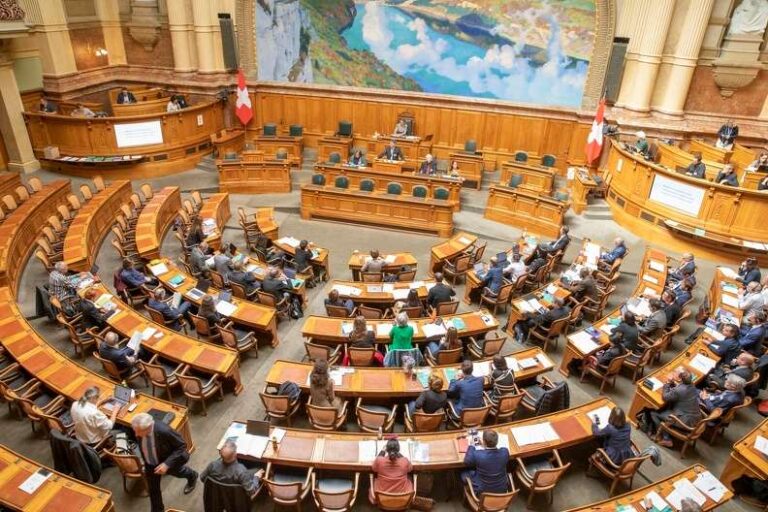Political equilibrium holds immense significance in the advancement and evolution of a nation. It forges a milieu that nurtures economic expansion, entices international capital inflow, guarantees social harmony, and instils a profound sense of assurance within the populace.
Within this discourse, we shall delve into an exploration of the preeminent ten nations that exhibit exceptional political stability, endeavouring to grasp the factors instrumental in fostering such constancy. By scrutinising these examples, we shall glean valuable perspectives on the attainment and sustenance of political equilibrium.
Table of Contents
1. Switzerland
Renowned for its unwavering political neutrality and steadfastness, Switzerland stands as a beacon of stability. It boasts a rich legacy of direct democracy, empowering its citizens to actively participate in shaping the nation’s political landscape.
With a federal system of governance, Switzerland strikes a harmonious balance between the central authority and the autonomous cantons. The country’s global significance is further underscored by its hosting of esteemed international organizations, including the United Nations and the World Health Organization.
2. Sweden
Embracing a constitutional monarchy and a parliamentary system, Sweden exemplifies political stability woven into the fabric of its governance. A strong tradition of social welfare policies accompanies its impressive political equilibrium.
Celebrated for its high quality of life, commitment to gender equality, and environmental consciousness, Sweden epitomizes progressive ideals. While a member of the European Union, Sweden has retained its own currency, choosing not to adopt the Euro.
3. Denmark
Revered as a parliamentary democracy with a constitutional monarchy, Denmark exemplifies a long-standing history of political stability. Enriched by a robust social welfare system, the country thrives on its core values of high living standards, environmental awareness, and progressive social policies. Like Sweden, Denmark is a member of the European Union but has maintained its independent currency.
4. Germany
As a federal parliamentary republic, Germany enjoys a remarkable track record of political stability and economic prosperity. With a president as the head of state and a chancellor as the head of government, Germany embodies a harmonious governance structure.
The country’s formidable reputation rests on its robust economy, technological prowess, and deep-rooted environmental consciousness. Germany’s influence extends to its active participation in the European Union and the G7.
5. Belgium
Embracing a federal parliamentary democracy with a constitutional monarchy, Belgium radiates political stability from its historical core.
Bolstered by a commitment to social welfare policies, Belgium shines as a multicultural society with a high standard of living and an ardent environmental conscience. It proudly participates in the European Union and NATO, emphasizing its significance on the global stage.
6. Australia
Operating as a federal parliamentary democracy with a constitutional monarchy, Australia epitomizes enduring political stability and economic prosperity.
Renowned for its breathtaking natural landscapes, Australia’s multicultural fabric and environmental consciousness contribute to its remarkable stability. It holds membership in the Commonwealth of Nations and the influential G20.
7. United Kingdom
With a parliamentary democracy and a constitutional monarchy, the United Kingdom boasts a rich history of political stability and economic prosperity.
Endowed with a cultural heritage that captivates the world, the UK embraces multiculturalism and environmental consciousness as integral components of its societal fabric.
8. Canada
Adhering to a federal parliamentary democracy with a constitutional monarchy, Canada thrives on a legacy of political stability and a commitment to social welfare.
Revered for its breathtaking natural beauty, Canada embraces multiculturalism and environmental consciousness as defining attributes. As a member of the Commonwealth of Nations and the G7, it actively contributes to shaping global governance.
9. The Netherlands
Exhibiting a parliamentary democracy within a constitutional monarchy, the Netherlands exudes political stability and economic prosperity. Emanating a spirit of liberal social policies, the country showcases a steadfast dedication to environmental consciousness and technological innovation.
As an active participant in the European Union and NATO, the Netherlands plays a pivotal role in shaping regional and global affairs.
10. Finland
Finland operates as a parliamentary democracy. A prime minister serves as the head of government, and the president is the head of state. It represents a model of political stability and social welfare policies.
Recognized for its high living standards, environmental consciousness, and technological advancements, Finland exemplifies a harmonious society.
Read also: These are the happiest countries in the world in 2022
The strategies to improve political stability
The establishment of resilient institutions and the upholding of the rule of law stand as fundamental pillars for the attainment of political stability. Governments must allocate resources towards the development of robust and impartial judicial systems, law enforcement agencies, and administrative bodies.
Furthermore, economic progress assumes a pivotal role in bolstering political stability. Governments should prioritize the creation of a conducive business environment that attracts investments and fosters sustainable economic growth. Initiatives aimed at job creation, poverty alleviation, and the reduction of income inequality are essential in addressing economic grievances and nurturing stability.
A comprehensive approach to enhancing political stability necessitates endeavors to fortify social cohesion and promote inclusivity. Governments ought to invest in quality education, healthcare, and social welfare programs to ensure equal opportunities and facilitate social mobility.
Encouraging dialogue, fostering reconciliation, and addressing historical grievances can also contribute significantly to fostering social cohesion.
Transparency, accountability, and good governance emerge as vital cornerstones in the pursuit of political stability. Governments must champion transparency in decision-making processes, combat corruption, and actively engage citizens in governance procedures. Strengthening anti-corruption mechanisms, safeguarding freedom of the press, and upholding human rights are indispensable elements for the preservation of stability.
Read also: Political instability on the rise globally: a comprehensive analysis












